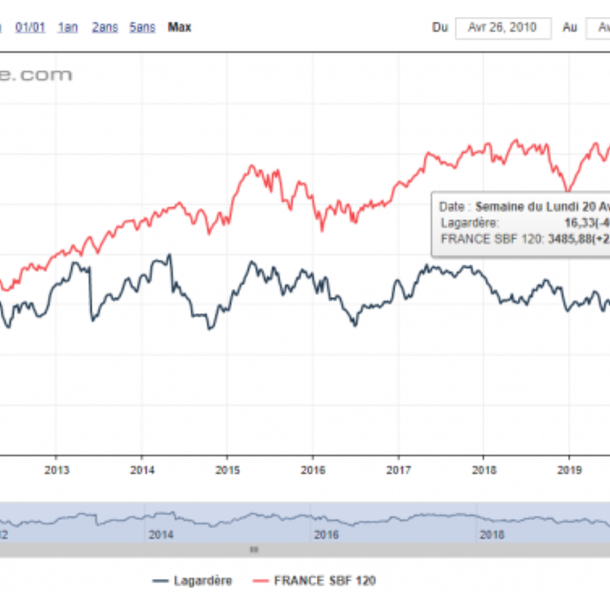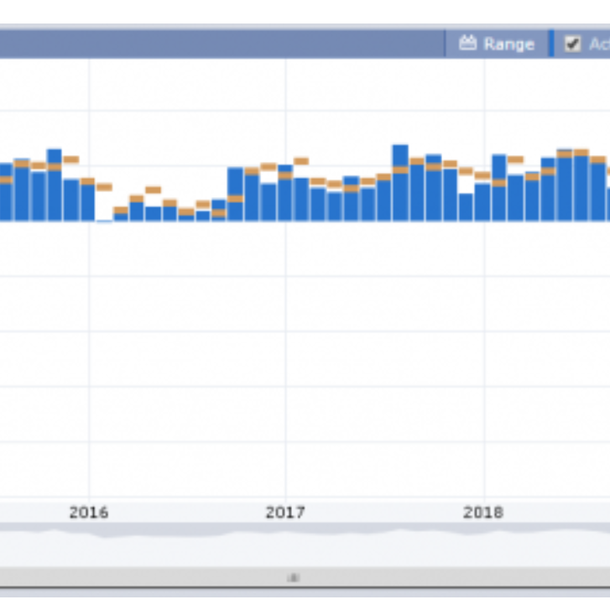|
Monday April 27 | Weekly market update |
 | The highlight of last week was undeniably be the oil crash, with the passage of WTI into negative territory, a historic first. The stock markets thus showed volatility, torn between contrasting corporate results and poor statistics, which confirm the pandemic's marked impact on the global economy. The weekly balance sheet is negative despite increased support from central banks and government stimulus plans. |
| Indexes Over the past week, most of indices have finally given way. In Asia, the Nikkei lost 3.2%, the Hang Seng 2% and the Shanghai composite 1%. In Europe, the CAC40 recorded a weekly loss of 2.3%, the Dax lost 2.6% and the Footsie 0.6%. For the peripheral countries of the euro zone, Italy fell by 1%, Portugal lost 1.3% and Spain 3.9%. In the United States, the Nasdaq100 was down by about 2.2%, the Dow Jones was down 3.3% and the S&P500 was down 2.8%. |
| Commodities What a historic week on oil markets! Futures prices on the May deadline were traded at negative prices. This says a lot about the health of the oil industry, undermined by an opulent supply that finds no counterpart in demand. However, prices recovered sharply at the end of the week, welcoming the upcoming OPEC+ production cuts. WTI is trading around USD 16.8 per barrel, while Brent is trading at USD 21.6. Gold remains highly sought after and is trading towards its annual highs at USD 1733 per ounce. Uncertainty surrounding global economic activity and central bank purchases are supporting prices. Silver does not fare as well but is gaining ground at USD 15.3. Industrial metals, on the other hand, posted a negative weekly performance. Copper fell to USD 5120, zinc traded at USD 1855, while lead traded at USD 1632. Spread between Brent and WTI  Brent (Black) WTI (Red) |
| Equities markets It's war at Lagardère. The Amber investment fund has increased its stake in the French company headed by Arnaud Lagardère to 18%, with the aim of dusting off the governance that it believes is responsible for the company's poor management, which is now refocused on publishing and duty-free shops, with well-known names such as Orbit or Relay in America. To protect himself, the heir to the empire founded by his father Jean-Luc Lagardère summoned the big names of French capitalism, such as Vincent Bolloré and Marc Ladreit de Lacharrière. The first one led Vivendi to take 10.6% of the capital, the second raised close to 5% with its holding company Fimalac. The general meeting of May 5 could have been a great show of hands. But Covid-19 decided otherwise. It will be held behind closed doors and debates will be limited to voting. Will Amber manage to get Arnaud Lagardère off the hook? Before the arrival of the Bolloré-Ladreit de Lacharrière cavalry, this scenario was in favor of prognosis, especially since the largest shareholder consulting firms (ISS, Proxinvest, Glass Lewis) consider Amber's grievances to be well-founded. Now, the forces at play seem to have rebalanced. But not the Lagardère share, which underperformed the SBF 120 index by 66% over 10 years. Lagardère significantly underperformed the SBF 120 index  |
| Bond market Rates are on the rise again this week, with the exception of the Bund, which is stabilizing at around -0.47%, as is the Swiss 10-year rate at -0.44%. The French OAT rose to 0.123%. The gap between Italian and Spanish government yields is narrowing slightly. The Spanish 10-year is trading at 1.049%, while the Italian BTP has risen to 2.157%. in America, US 10-year bonds fell slightly, with the T-bond posting a return of 0.55%, compared with 0.64% last week. |
| Forex market The U.S. dollar continues to be sought after by Forex traders in a relatively calm foreign exchange market, although there are still many uncertainties on both the macroeconomic and health fronts. The drop in the price of U.S. crude oil hasn't eroded the value of the greenback, which is appreciating against its counterparts. The euro is thus losing ground against the dollar at USD 1.07, as is the pound at USD 1.23. The yen is showing resistance, just like the USD/JPY pair, which is trading completely flat at JPY 107. The single currency continues to erode both against the Swiss franc at CHF 1.05 and against the yen at JPY 115.5. |
| Economic data With the exception of the German Zew, which exceeded expectations (+28.2 vs. -40 expected), European activity statistics were very negative. The manufacturing and services PMI indices in the euro zone came out at 33.6 and 11.7 respectively (consensus 38.7 and 23.2). This week will be punctuated by retail sales, GDP, the unemployment rate and the ECB's rate decision. In the U.S., Oil Inventories came out at 15M, weekly Unemployment Claims at 4427 (consensus 4350K and 5237K last week). The Flash PMI indexes were mixed, with the manufacturing index exceeding expectations (36.9 vs. 35.1 expected) while the services index plunged to 27 (see chart). Orders for durable goods fell by 14.4%. From Tuesday, traders will learn about the first estimate of U.S. GDP for the first quarter and then the Fed's decision on monetary policy, household spending and income, and the ISM manufacturing index at the end of the week. Sharp drop in the Flash PMI services index in the United States  Source: Forex Factory |
| Indices free themselves from the oil trap After a month of powerful rebounds, indices logically needed a breather. The unbelievable oil scenario could have shattered recent gains, but stock markets have shown surprising strength. All this at a time when reports on corporate results pretty much all stated that visibility is poor and the 2020 targets are abandoned. These are truly exceptional times in every respect. The last week of April is already here, with the prospect of a gradual easing of restrictions for several major Western economies in the first half of May. The question on everyone's mind is the same: will the recovery allow the economy to get quickly back on track, enough so that the damage caused by Covid-19 will not be fatal to entire sectors of activity? |

 By
By 













